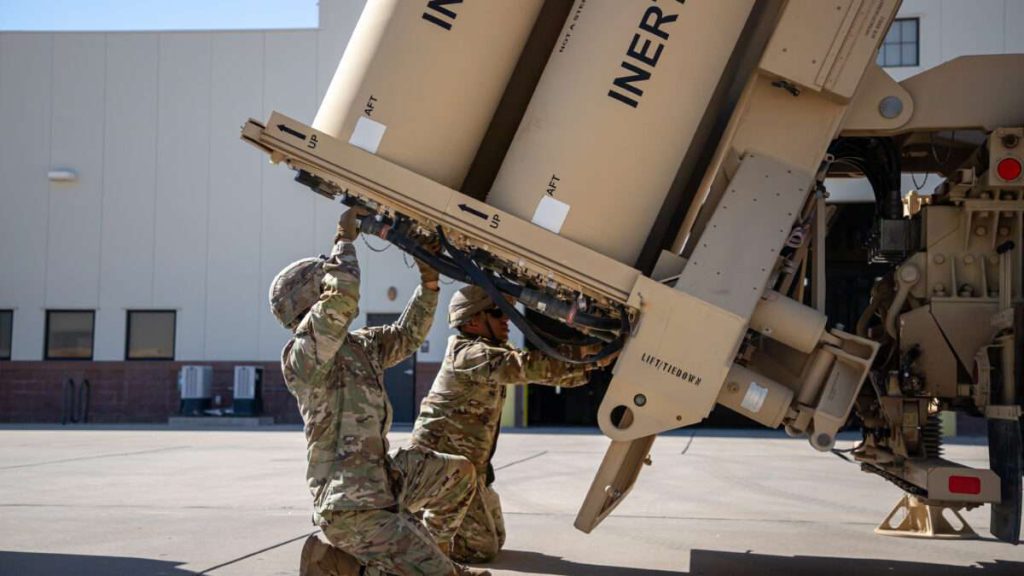The conventional wisdom for the past few decades has been that Saudi Arabia needs direct U.S. military protection while Israel just needs American assistance to do the job itself. In 1991, it took a direct intervention by U.S. Marines to protect Saudi Arabia from an Iraqi invasion. And in 2015, the Saudi intervention in Yemen required serious American hand-holding: U.S. planes refueled Saudi fighter jets while American advisers sat in the room for target selection.
Although Israel has received more military aid from American taxpayers than any other country since World War II, its supporters have been able to brag that Israel has fought almost all of its battles with Israeli troops alone. “I know of American troops fighting and dying on behalf of Kuwait, Saudi Arabia, Iraq’s Kurds and Shia (and so on), but not on behalf of Israel. No American soldier has ever died in the defense of Tel Aviv,” The Atlantic‘s Jeffrey Goldberg wrote in 2011. “Nor would Israelis want American soldiers to die on Israel’s behalf—self-sufficiency being a governing idea of Zionism.”
Now the script is flipped. Over the past week, the Biden administration has both sent U.S. troops to Israel and opened the floodgates even further on weapons to Saudi Arabia. President Joe Biden, who came to office promising to reduce tensions in the Middle East and claimed that he was “the first president this century to report to the American people that the United States is not at war anywhere in the world,” is now pushing America deeper into a new Middle Eastern war.
On Sunday, as Israel geared up to attack Iran, the U.S. military announced that it is deploying a Terminal High Altitude Area Defense (THAAD) system to Israel to defend against any Iranian counterattack, with American troops on the scene to help. Deploying U.S. forces “underscores the United States’ ironclad commitment to the defense of Israel, and to defend Americans in Israel, from any further ballistic missile attacks by Iran,” Maj. Gen. Pat Ryder declared in a statement on Sunday.
And on Friday, the Biden administration notified Congress of its intent to sell weapons worth $2.2 billion to Saudi Arabia and $1.2 billion to the Saudis’ close ally, the United Arab Emirates (UAE). Both the THAAD deployment and the arms deal were clearly aimed at Iran—and Democrats’ rhetoric towards that country sounds awfully like the buildup to the Iraq invasion.
Asked last Tuesday who America’s “greatest adversary” is, Vice President Kamala Harris told CBS that Iran is the “obvious” answer. (Even some prominent neoconservatives at the Hudson Institute and the Washington Institute for Near East Policy were taken aback that she did not answer China or Russia, according to Politico.) During a Yom Kippur holiday call over the weekend, Harris stated that she “will never allow Iran to acquire a nuclear weapon” and that “all options are on the table.”
Not that Republicans are any less hawkish on the region. Former President Donald Trump publicly encouraged an Israeli attack on Iran last week, and he has previously said that he would “protect Israel” in a war with Iran. Trump’s son-in-law and former adviser, Jared Kushner, wrote last month that “Iran is now fully exposed” and “it’s not only Israel’s fight.”
The weapons sales to Saudi Arabia and the UAE are not U.S. aid in the traditional sense; the missiles, artillery, and ammunition will be paid for with Saudi and Emirati money. Yet it is a step along the road to dragging the U.S. back into Saudi wars. At the beginning of his term, President Joe Biden banned “offensive weapons” sales to Saudi Arabia as part of a push to secure a ceasefire in Yemen. But later, Biden began chasing a U.S.-Saudi “mega-deal” that would commit U.S. troops to defend the kingdom. And last month, Biden broke his own offensive weapons ban by approving a $750 million bomb shipment to Saudi Arabia, a signal that he is still interested in the mega-deal.
After that sale received minimal opposition from Congress, the Biden administration has been plowing ahead with much larger arms deals. Saudi Arabia, for its part, has been playing hard to get: Last week, Saudi Crown Prince Mohammad bin Salman hosted an Iranian delegation.
Meanwhile, the THAAD deployment may be the first time ever that U.S. troops are deployed to Israel to fight an Israeli war. During the war with Iraq in 1991, the U.S. military deployed Patriot air defense systems to Israel—but it specifically asked Israel not to get involved in the fighting itself. This time around, Israeli leaders are publicly stating their plans to attack Iran. Those U.S. air defense troops would be standing in the middle.
Iranian foreign minister Abbas Araghchi made that point clear. The United States is “putting lives of its troops at risk by deploying them to operate US missile systems in Israel,” he wrote on social media. “While we have made tremendous efforts in recent days to contain an all-out war in our region, I say it clearly that we have no red lines in defending our people and interests.”
The U.S. deployment may have been prompted by sudden, unexpected weaknesses in the famous Iron Dome and other Israeli air defense systems. Israeli authorities have heavily censored the aftermath of Iran’s October 1 missile strike, arresting an American journalist who reported on impact sites. And the Lebanese militia Hezbollah has been increasingly able to penetrate Israeli defenses. On Sunday, shortly after the U.S. announced the THAAD deployment, a Hezbollah drone penetrated a military base deep inside of Israel, killing four Israeli troops.
But direct U.S. involvement has also been a long time in the making. After Hamas’ October 2023 attack on Israel, the Biden administration sent two aircraft carriers to the region—an implicit threat to attack anyone who joined in the war. Soon after, American troops deployed to Israel as part of an intelligence sharing mission. In May 2024, the U.S. military landed in Gaza to deliver food to Palestinians under Israeli supervision. That same month, the Biden administration drew up plans for a new Palestinian government run by an American “director-general.”
The direct Iranian-Israeli combat began in April, when Israel bombed the Iranian consulate in Syria, which the Israeli army claimed was being used for threatening military purposes. Two weeks later, Iran fired a barrage of missiles and drones at Israel, and the U.S. military shot down many of the Iranian projectiles outside Israeli airspace. Last month, Israel killed an Iranian general in Lebanon, and Iran again fired missiles at Israeli military bases on October 1. Israel is now planning a much bigger retaliation inside Iran.
While it has publicly called for de-escalation and calm, the Biden administration privately sees these wars as “a history-defining moment—one that will reshape the Middle East for the better for years to come,” according to Politico. In an interview with Lebanese television denying Politico‘s report, U.S. envoy Amos Hochstein made a Freudian slip about the administration’s ambitions for regime change in at least one country.
The U.S.-funded Lebanese Armed Forces “should be the primary security mechanism that defends Lebanon along its borders. Other security and police should be strengthened as well to provide internal security,” Hochstein said. “And at the same time, have a new government, once we elect, select—once Lebanon elects—a president, have a new government that can address the critical needs of the country. That is how we bring about the end of this conflict.”
The post Biden Pulls America Even Deeper Into the Middle East appeared first on Reason.com.







